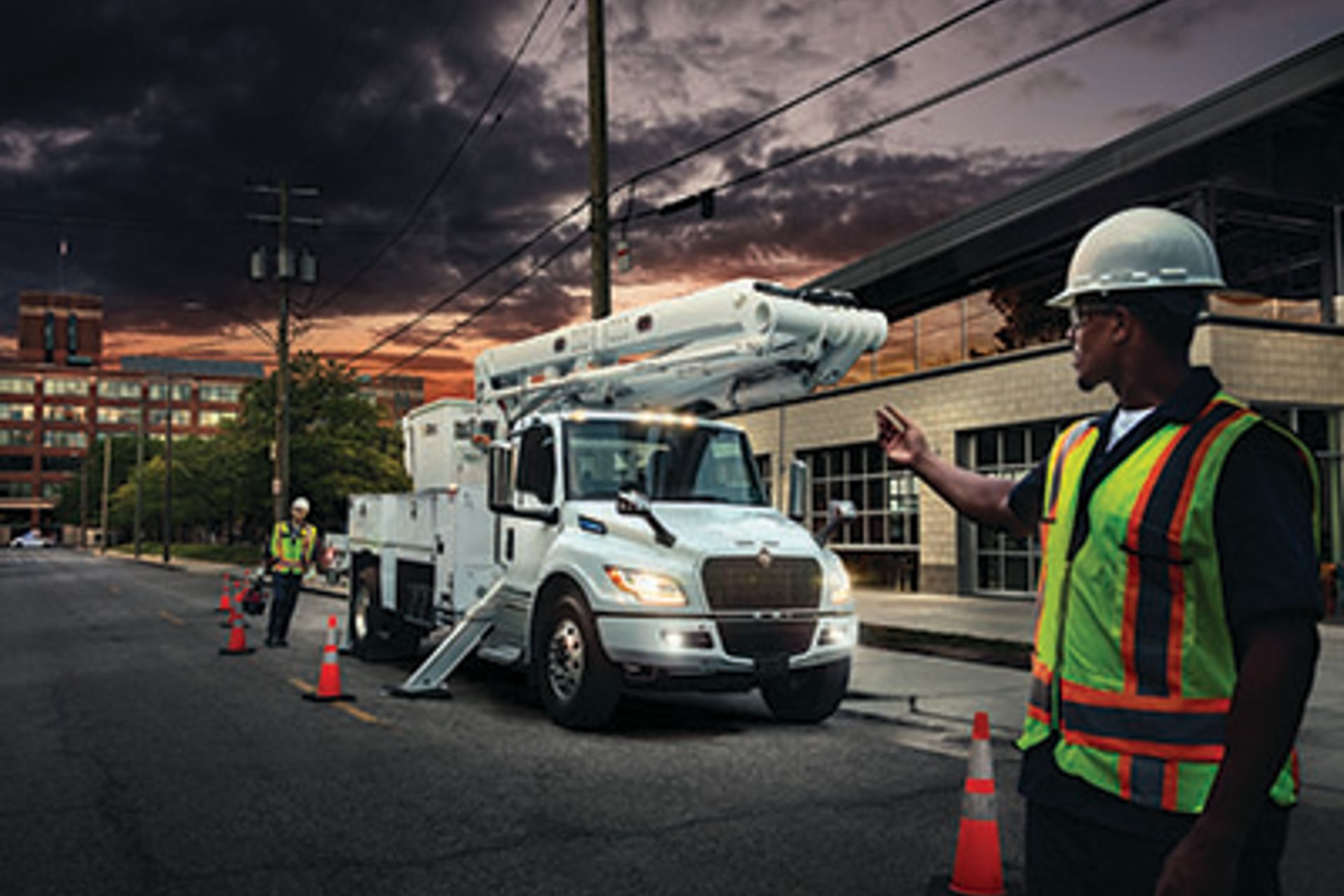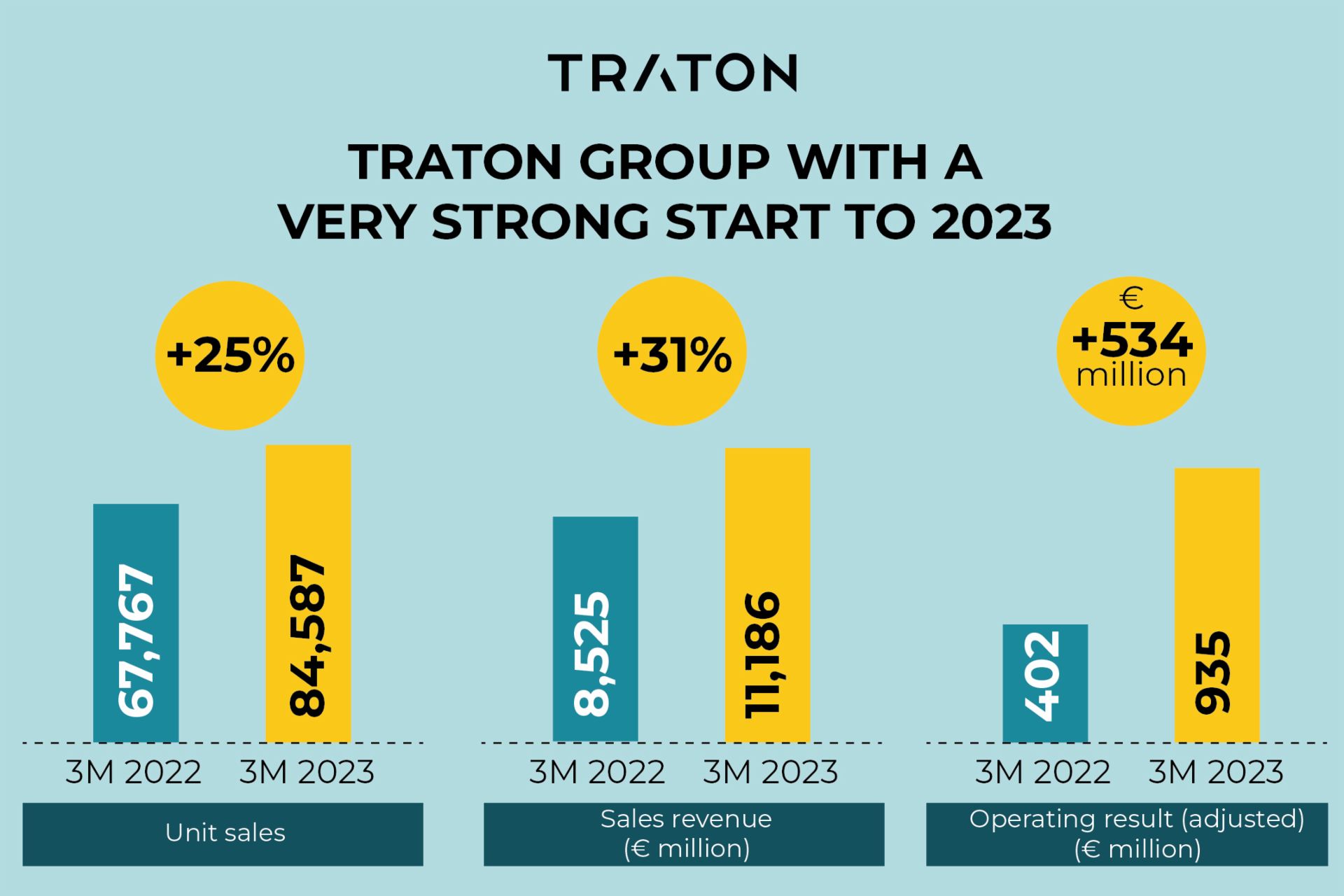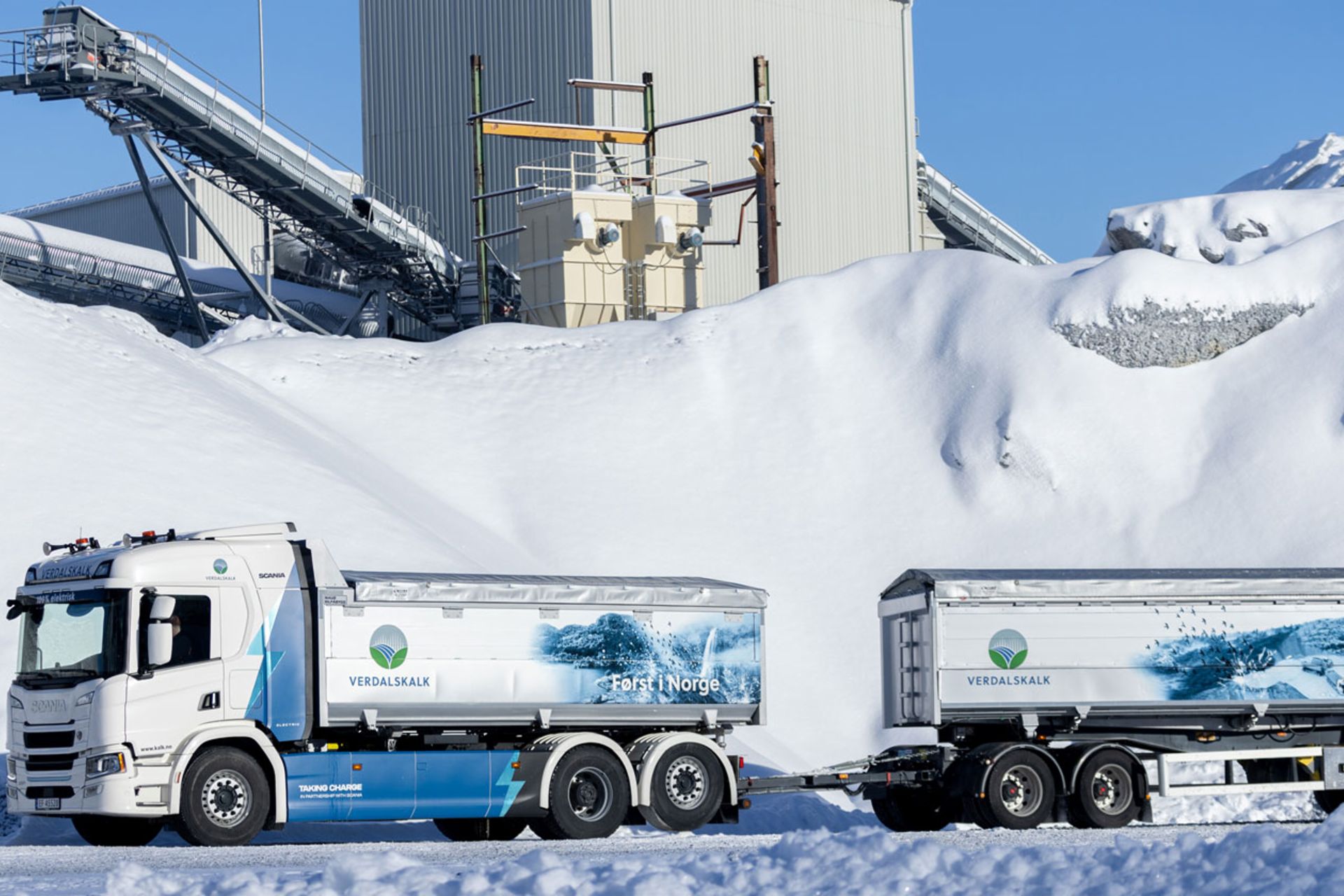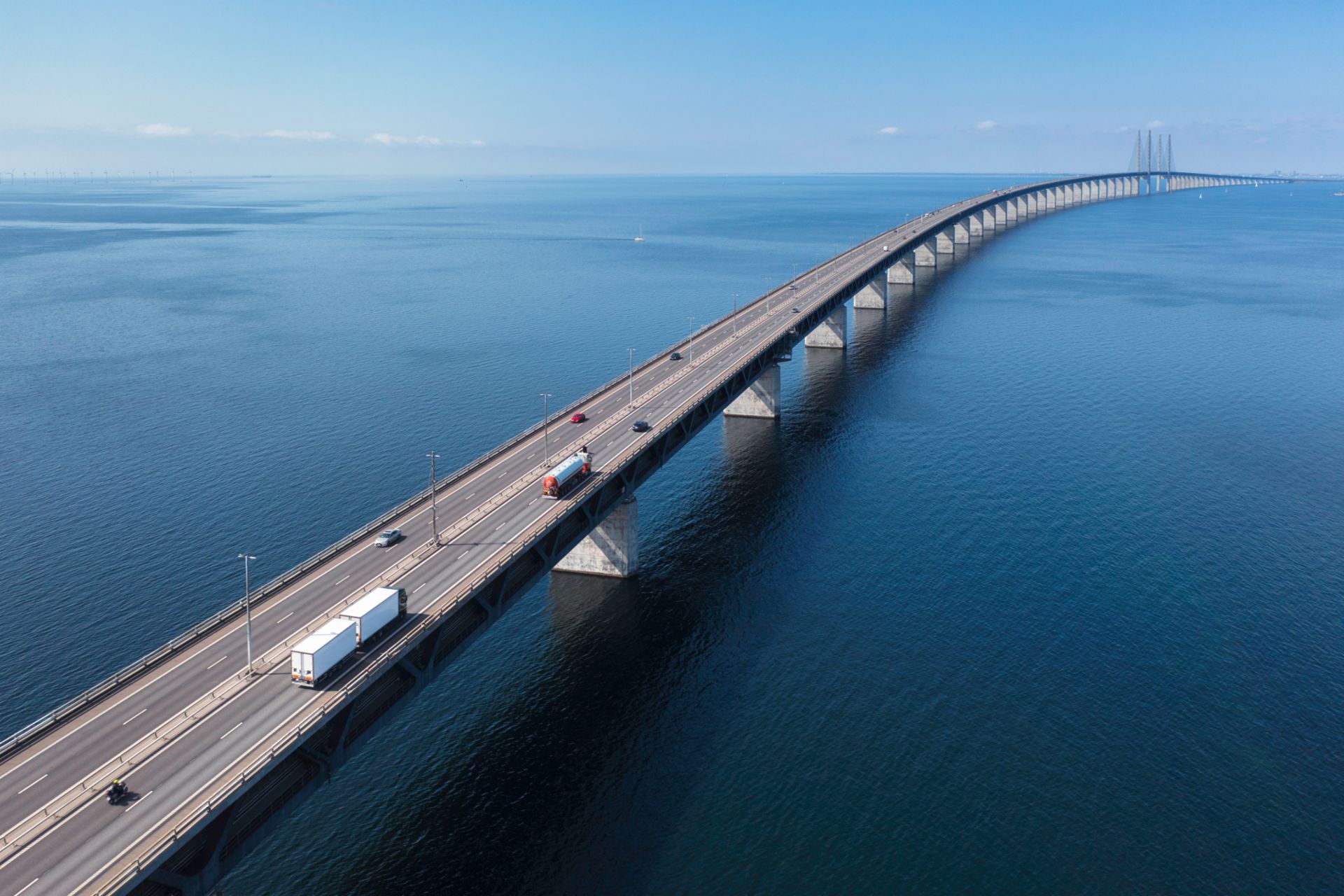Commentary from Christian Levin, CEO of the TRATON GROUP
When we at the TRATON GROUP announced our financial key performance indicators for the first quarter of 2023 at the beginning of May, I was delighted to be able to report on a powerful start to 2023. As a result, we are now expecting an adjusted operating return on sales for 2023 to range from 7.0 percent to 8.0 percent, following the original forecast of 6.0 to 7.0 percent. Meanwhile, we have increased our unit sales and sales revenue forecast to 15 percent. These successful results are proof points of the hard work and dedication of our colleagues in the whole TRATON GROUP, working all over the world in our Scania, MAN, Navistar and Volkswagen Truck & Bus (VWTB) brands.
The past 12 months have been incredibly challenging – not just for the transportation industry, but for the whole world. While the aftershocks of the COVID-19 pandemic started to recede, unforeseen geopolitical issues arose caused by the war in Ukraine, including a significant demand-supply gap in the global trade market. We have also seen how the energy crisis has contributed significantly to rising inflation, affecting everything from cost of living to production supply.
Despite these complex challenges, it is encouraging that our own supply chains stabilized during the opening months of 2023. In doing so, TRATON was able to significantly increase its production volume during this period. This has enabled us to deliver more vehicles to our customers, particularly those in Europe and North America. From January to March, the overall unit sales of our brands rose by a quarter to 84,587 units, compared to 67,767 units for the same three-month phase last year.
"I remain impressed with the efforts of VWTB, which is managing well in a challenging market environment and I am proud that our brands delivered a great performance in the first quarter."Christian Levin, CEO of TRATON
Looking more closely at the performance of our brands, I felt inspired when I saw that Navistar maintained the sound performance it achieved in the previous quarters. This further justifies our decision to welcome the company to the TRATON family in 2021. Scania, demonstrated a resurgence, regaining its former profitability level in Q1 and recording an operating return on sales of 13.3 percent. Also, MAN demonstrated the capabilities and high dedication, delivering a significant improvement in operating return on sales of 5.8 percent.
Unfortunately, there was a tougher situation in the South American market, due to the earlier pre-buy effect of new emissions standards, as well as high interest rates in Brazil. From our perspective, this has contributed to a dampening of customer demand, which in turn drove down our unit sales of trucks on the continent. We remain hopeful that the tide will turn later in the year. Despite this, I remain impressed with the efforts of VWTB, which is managing well in a challenging market environment and I am proud that our brands delivered a great performance in the first quarter.
I am delighted to report that TRATON’s Vehicle Services business also remains robust, and achieved a growth of 31 percent to €11.2 billion in sales revenue. This emphasizes TRATON’s unwavering commitment to providing exceptional services to our customers. Meanwhile, our adjusted operating result more than doubled, rising by €534 million to €935 million. This compared favorably to the first three months of 2022, where it stood at €402 million.
How the TRATON GROUP is shaping up for the rest of 2023 and beyond
TRATON will do everything in our power to harness the momentum we gained in the first quarter to have a successful rest of 2023 and beyond by continuing to provide our customers with the best services and products. We will sustain our important investments in electrification – both in terms of innovative battery technology and infrastructure.
It is clear that the shift to electrification will see the transportation industry change more in the next decade than in the previous century. And this is absolutely necessary, as the climate crisis is the biggest challenge faced by humanity. As a leading transportation company, we have a significant responsibility to spearhead this change. While the road ahead to drive the change to a sustainable transport system will be a challenging one, I foresee a fantastic opportunity for all of our TRATON GROUP brands: they are not just ready for this – they are actively driving it.
In January, MAN announced exciting news in the field of electric heavy-duty transportation: from 2024, DB Schenker will become the first customer to operate its new MAN eTrucks. That same year, the first vehicles will be produced in a small series on the production line at MAN's headquarters in Munich, and the first units will be delivered to the international logistics company. DB Schenker plans to add 100 new MAN eTrucks to its fleet by 2026 as it electrifies its road freight transport.
In mid-May, MAN announced that the international logistics service provider Duvenbeck has signed a letter of intent for the use of 120 MAN eTrucks to be delivered by 2026. A large portion of these will drive for Volkswagen Group Logistics – its first electric trucks.
In March, Scania delivered Norway's largest electric truck to the Verdalskalk limestone quarry in Verdal, Norway. Weighing 66 tons, the P 45 with three axles and a 300-kWh battery capacity will annually transport around 120,000 tons of limestone from the quarry to the port for shipment. The previous fossil fuel consumption on the route will be cut by 58,800 liters, and CO2 emissions from operation by 156 metric tons.
Scania is also flying the flag for the TRATON GROUP in the field of sustainable battery technology. In April, the company unveiled an innovative battery cell for heavy-electric vehicles that has been jointly developed with its partner Northvolt. As the development of the battery cell started, we targeted high performance, low operating costs and long lifetime. We decided on a requirement for the cell to enable 1.5 million kilometers of driving – in line with the lifetime of a heavy-duty vehicle. The tests showed that this requirement can not only be met, but also exceeded. This announcement marked a milestone on the path towards a sustainable transport system.

Navistar is continuing to accelerate the impact of sustainable mobility by logging additional operating miles and expanding market applications for its electric vehicle offerings. Last month, Navistar’s International Truck and IC Bus electric vehicles celebrated a major milestone: logging one million miles driven – equating to a carbon emissions reduction of more than 800 metric tons.
Meanwhile, VWTB are celebrating 30 years of the Volksbus chassis line. Over 175,000 chassis have been produced since its launch and the Volksbus line now offers seven models. Today, it is manufactured in Brazil, Mexico, South Africa and the Philippines. Here is to the next 30 years!
Something else I am excited about for the year ahead is the developments with EV infrastructure. Milence, the joint venture established by the TRATON GROUP, Daimler Truck, and the Volvo Group, will build at least 1,700 high-performance public charge points for heavy-duty vehicles across Europe the coming years. Operating as an independent standalone company, Milence will offer public charging stations to all heavy-duty battery-electric vehicles, regardless of brand.
With strong first-quarter results, a revised outlook for 2023 and investments in the latest electrification innovations, I am confident that TRATON is well-positioned for continued success.




